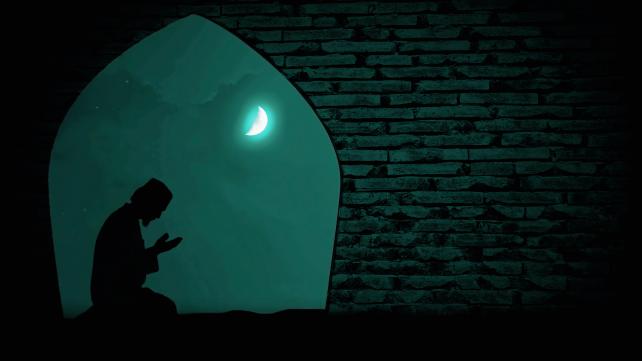
As Muslims we spend the entire calendar year anticipating the Barakah (blessing) that emanates in the month of Ramadan. And from this month, the most auspicious period is the last third of the month, a week before the end of Ramadan. It is during this time that the night of power or Laylatul Qadr occurs .
Prophet Muhammad, peace and blessings be upon him, used to strive hard in worship during the last ten days of Ramadan in a way that he did not strive at any other times (Muslim).
Roll up your sleeves and welcome the last third of the month!
Here are nine ways to spend your last 10 days to make this Ramadan transformative.

1. Pay Zakat
Many Muslims plan to pay this obligatory pillar of Islam yearly at some point in Ramadan, to benefit from the greater spiritual reward attached to charity during the month. If you haven’t already, do so this month, keeping in mind needy relatives, neighbors, as well as current hot spots of suffering.
2. Pay Zakat al-Fitr
Zakat al-Fitr allows needy families to enjoy the Eid holiday. Pay this to your local Masjid or an organization of your choice well before Eid-ul-Fitr as Ramadan ends.
3. Up your giving
With the loss of jobs and loved ones due to COVID-19, there are a lot more people close to us and neighbors who are suffering but are silent.
Prophet Muhammad, peace and blessings be upon him, reminded us that “charity does not decrease wealth” (Muslim).
Stay in touch with your neighbours, relatives, and friends to make sure they aren't silently suffering. A small amount can go a long way.
Remember that Allah is al-Razzaq, the Provider.
4. Attend Taraweeh if you can
While COVID-19 restrictions still apply, many Masjids have reopened for Ramadan and have been holding nightly Taraweeh prayers. Try to attend a few, masking, maintaining your distance, and bringing your own prayer rug.
5. Connect to Laylatul Qadr by learning the Seerah
It is the norm for Muslims to have the same goal every single Ramadan of finishing the recitation of the entire Quran. However, while this act is beautiful, we may forget to connect with the Quran rather than simply reciting.
This doesn't go to show that reciting has no value. Rather, if we really want Ramadan to transform us, it requires connecting to the Quran on a deeper level.
The Quran was revealed to our Prophet Muhammad, peace and blessings be upon him, as events in Makkah and Madinah unravelled during His time. You’ll realize that the Quran, from one perspective, is a commentary on the Seerah i.e. the biography of the Prophet.
It is only by knowing the Seerah that you can truly connect to the Quran. You don’t need to know Arabic.
You can read a book like The Sealed Nectar by Saifur Rahman Mubarakpuri, or you can watch the Umar series, which is a show on the Seerah.

6. Call your relatives to make Eid plans
Islam puts a premium on maintaining family ties. If you haven’t been able to keep in touch with relatives, use these last 10 days leading to the end of Ramadan to call, email, message or text about getting together for Eid-al-Fitr.
With the weather warming up, it is a great time to take your celebration outdoors, maintaining masking and physical distancing to ensure everyone’s safety as you party.
Also, set up FaceTime and Zoom calls with family and friends you cannot get together with in person.
7. Make your last fasts really count
If you’ve caught yourself succumbing to un-Ramadan-like habits while fasting, make an extra special effort in these last days of the month to become conscious of these behaviors and stop them before they start.
These can range from swearing, backbiting, talking about frivolous things, watching television shows or movies with sexual innuendo or jokes, etc.
Regardless of how Ramadan started, now it's your hands to end Ramadan well. Allah looks at your efforts and not at the results, as long your intentions are those of striving.
8. Connect with Allah through Tahajjud
It’s hard getting up for Suhoor, so why make the effort for Tahajjud? This blessed time is one in which Allah is very close, answering prayers and offering forgiveness, in particular (Bukhari). It is the last third of the night, occurring a few hours before Fajr starts.
Multiply that by the fact that it’s Ramadan and you’ve got an exceptional opportunity to really connect with God.
One reason we find it difficult to pray Tahajjud is because we use it primarily to ask Allah for those things that we need or want. There is absolutely nothing wrong with this. However, try shifting your primary goal from asking Allah what you need to connect and building your relationship with Allah.
It changes the way to think about Tahajjud, and insha Allah will help you end Ramadan with a heart that’s connected to Allah.
9. Dua, Dua, Dua
Use as many of Ramadan’s last minutes to make plenty of Dua. These include not only the standard supplications recommended for everyday use (e.g. before and after eating, dressing, entering and leaving the home, etc.), and those seeking God’s Mercy and Forgiveness.
Truly pour your heart out, asking from the One Who already knows your needs and wants and faces no barriers to fulfilling them.
One of the most important Duas you can make is for Allah to give us the ability and guidance to carry Dawa (call to the message of Islam). As a Muslim, Dawa must be an important aspect of your life.
One of the signs of the acceptance of your Ramadan, is that you continue to carry on doing the deeds you performed in Ramadan. Life is short, so utilize Ramdan as a catalyst for your transformation.





Add new comment